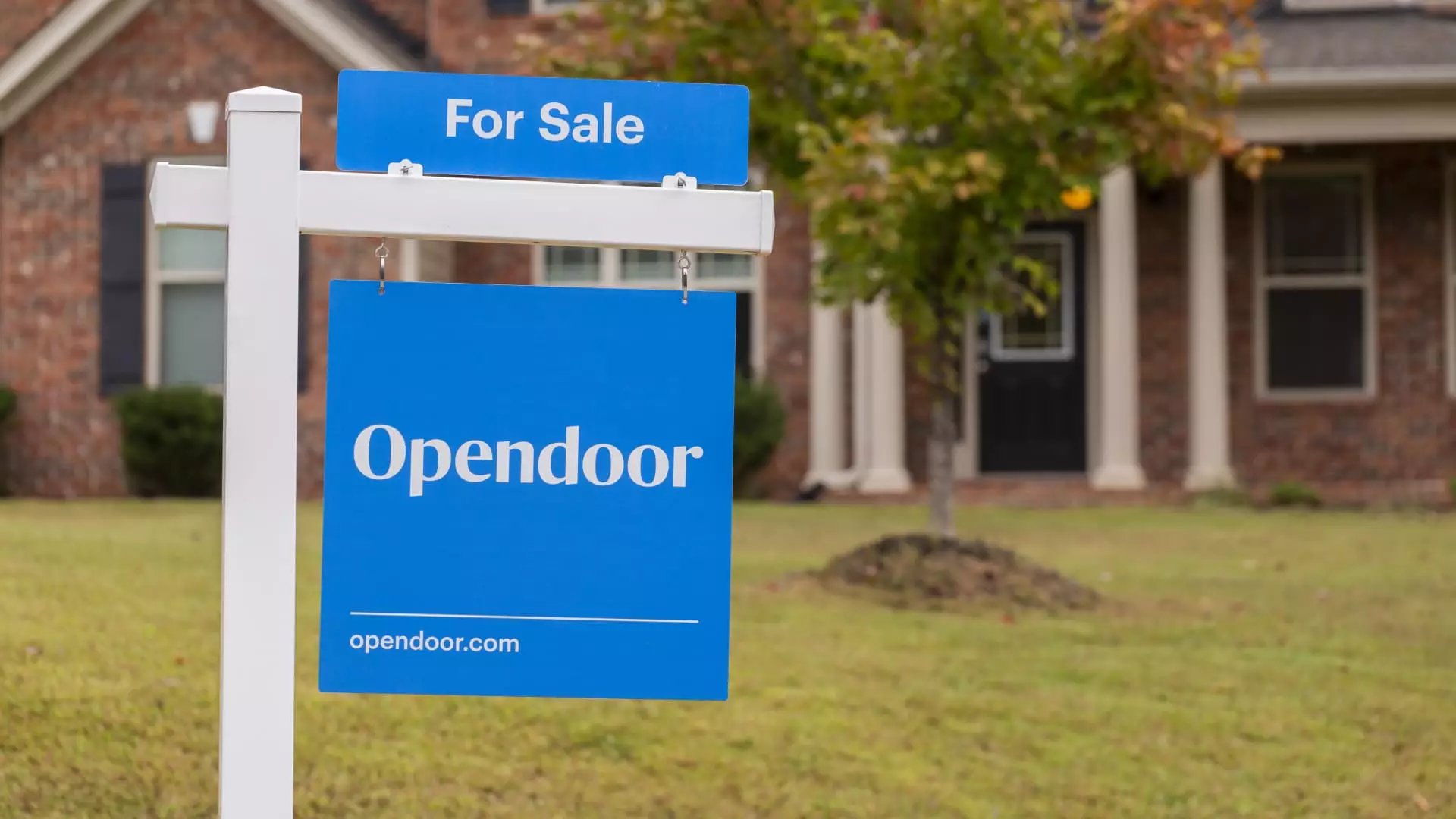Opendoor’s recent stock surge might seem like a sign of bouncing back, but beneath the surface, the company remains ensnared in deep instability. Its core business—using technology to buy and sell homes for profit—sounds innovative, yet in reality, it’s wrapped in a fragile shell. The company’s financials reveal a rapid contraction in acquisitions, dropping from 3,504 homes in the third quarter of 2023 to a mere 1,200 in the latest quarter. Such a steep decline exposes its inability to sustain operations under market pressures. The sharp drop in house acquisitions signals not just operational setbacks but also a lack of confidence from the market and potential investors. The recent stock rally might provide short-lived relief, but it does little to address the fundamental weaknesses that threaten its long-term viability.
The Leadership Shake-Up: Sign of Deep-Rooted Instability
Carrie Wheeler’s resignation as CEO underscores the turbulence simmering beneath Opendoor’s surface. Her departure comes amidst mounting pressure from investors and insiders who question her leadership and the company’s direction. Wheeler’s attempt to pass the baton to new leadership is symptomatic of a broader, underlying crisis: a company attempting to pivot amid declining markets and investor skepticism. Her statement about “accelerating her succession plans” hints at internal discord and a recognition that current leadership may be incapable of steering the company through rocky waters. Appointing a technology chief as interim leader underscores a defensive posture—patching together a temporary fix rather than presenting a clear, sustainable strategic vision. This leadership instability raises doubts about whether Opendoor can navigate its way out of its prolonged slump or if it is destined for further decline.
The Influence of Speculative Investors and Market Hype
Opendoor’s recent rally appears driven by speculative fervor rather than tangible improvements. Hedge fund manager Eric Jackson’s bullish stance—championing the stock with promises of a “100-bagger”—embodies the risky optimism that often accompanies market hype rather than sound fundamentals. Jackson’s involvement, along with outspoken critics of Wheeler like venture capitalist Keith Rabois, reveals a competitive scramble based more on ego and speculation than on strategic clarity. While some traders see dollar signs, this sentiment blinds investors to the gravity of the company’s structural problems: the exposure to high mortgage rates, an overleveraged business model, and an obliteration of shareholder value since 2021. Such hype ignores the lessons of past tech and real estate bubbles—underscoring that speculative interest alone cannot sustain a faltering enterprise.
The Broader Market Context and Regulatory Concerns
Since its 2020 SPAC merger, Opendoor’s journey has been plagued with macroeconomic headwinds—rising interest rates, inflation, and declining housing markets. The company, once buoyed by Covid-era market euphoria, now struggles under the weight of macroeconomic realities, revealing how fragile tech-driven real estate startups truly are. Its prior valuation evaporated by 99%, a stark reminder that exuberance can quickly turn into disaster when fundamentals collapse. Additionally, the company’s focus on rapid acquisitions and marketing cuts signals an attempt to survive rather than thrive, often at the expense of strategic growth. Many critics argue this approach risks regulatory scrutiny for overreach and misrepresentation—an issue that stocks like Opendoor need to heed lest they face more damaging regulatory crackdowns.
The Transparency Deficit and the Future Outlook
The murkiness surrounding Opendoor’s true financial health and corporate governance is worrying. Leadership changes and high-profile critics highlight internal discord, suggesting that the company’s internal compass is disoriented. While a new CEO search is underway, history suggests that leadership changes alone seldom solve systemic issues. For Opendoor to truly recover, it must confront its flawed business model, accept market realities, and rebuild trust—something no amount of hype or speculative support can replace. The current rally, supported by aggressive investors chasing quick gains, risks creating a false sense of security that may soon be shattered by harsh market realities. The company’s over-reliance on a volatile housing market and the failure to innovate a sustainable, diversified revenue stream leave its future hanging in precarious balance.

